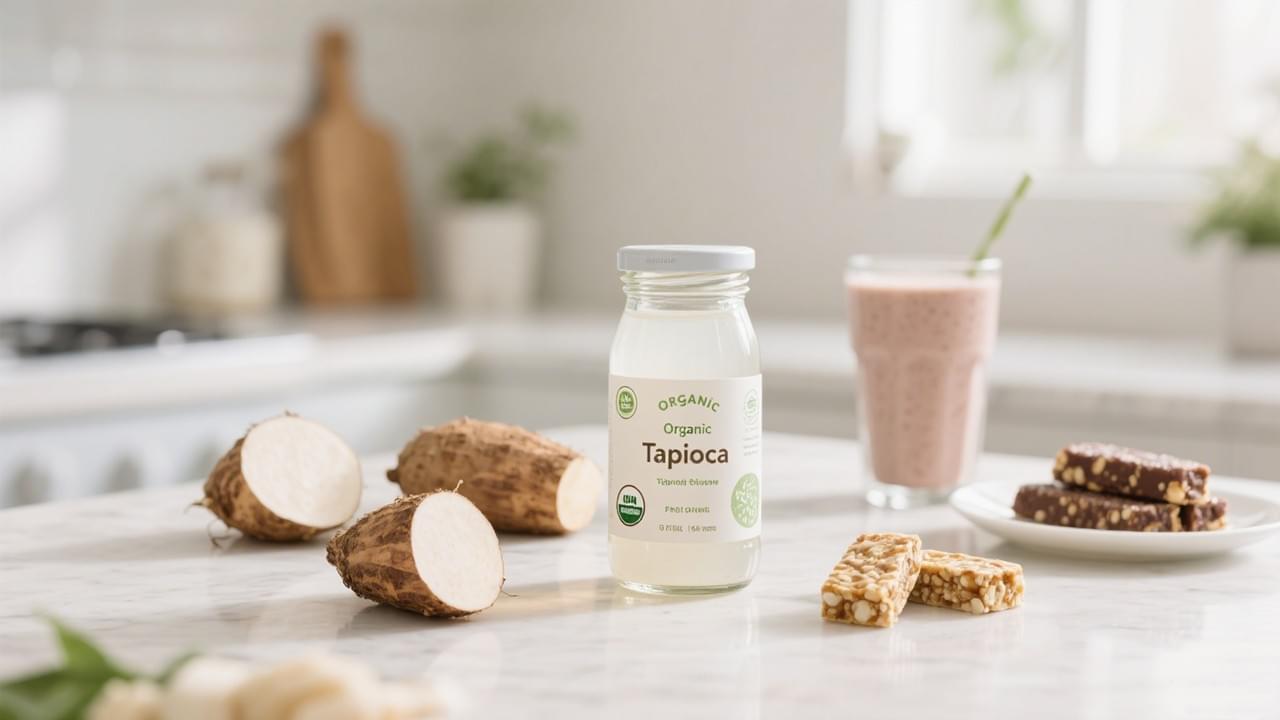In today’s wellness-driven food industry, organic tapioca syrup is emerging as more than just a natural sweetener. It is a clean-label, allergen-free, and functional ingredient that empowers brands to deliver healthier products while meeting consumer demand for transparency. From sports nutrition to plant-based snacks, organic tapioca syrup is reshaping how manufacturers approach formulation and market positioning.
What Makes Organic Tapioca Syrup Unique?
Organic tapioca syrup is derived from cassava root, a sustainable crop known for its resilience. Through enzymatic processing, cassava starch transforms into a mildly sweet syrup that fits clean-label sweetener standards. Unlike refined sugars or artificial additives, it offers a transparent, natural origin that appeals to health-conscious buyers.
Its varying dextrose equivalence (DE) levels provide versatility—allowing it to act as both a functional binder in nutritional bars and a mild sweetener in beverages and dairy alternatives.
1. Clean-Label Sweetener for Consumer Trust
Today’s shoppers demand recognizable, natural ingredients. Organic tapioca syrup enhances brand credibility by simplifying ingredient lists and supporting natural syrup for health foods positioning. Manufacturers using it can confidently meet clean-label expectations without compromising product taste or texture.
2. Allergen-Free and Versatile in Diet-Friendly Products
With rising concerns about gluten, soy, and dairy, allergen-free formulations are a priority. Tapioca syrup is naturally vegan, non-GMO, and gluten-free, making it ideal for inclusive product lines such as plant-based beverages, infant nutrition, and functional snacks.
3. Steady Energy Release for Active Consumers
Unlike refined sugar spikes, tapioca syrup delivers sustained energy, supporting applications in functional beverages and sports nutrition. This controlled release makes it attractive for energy bars, meal replacements, and other performance-driven categories.
4. Functional Benefits in Food Formulation
Beyond sweetness, tapioca syrup improves moisture retention in baked goods, prevents crystallization in confectionery, and enhances mouthfeel in dairy alternatives. These features reduce the need for multiple additives, allowing cleaner formulations and lower production costs.
5. Aligning with Wellness and Lifestyle Trends
From keto-friendly snacks to clean-label infant foods, organic tapioca syrup adapts easily to trending categories. Its compatibility with plant proteins and functional ingredients helps brands innovate and meet fast-growing consumer segments seeking healthier choices.
6. Strategic Advantage for Manufacturers and Private Labels
In the B2B market, sourcing matters. Partnering with established producers such as Deli Foods, which offers certified organic tapioca syrup alongside OEM/ODM services, ensures reliability and scalability. With 20+ years of expertise and global supply capacity, manufacturers can confidently launch clean-label product lines that reach international markets.
7. Sustainability and Ethical Sourcing
Cassava is a hardy, resource-efficient crop, making tapioca syrup a more sustainable alternative to other sweeteners. Highlighting sustainable sourcing and transparency in labeling allows brands to build trust and appeal to eco-conscious consumers—an increasingly important driver in product choice.
As consumers demand healthier, transparent, and functional foods, organic tapioca syrup is proving to be more than a sweetener—it is a strategic ingredient for future-ready product innovation. With its clean-label appeal, functional versatility, and alignment with health trends, brands adopting tapioca syrup position themselves for long-term growth in the competitive wellness market.



